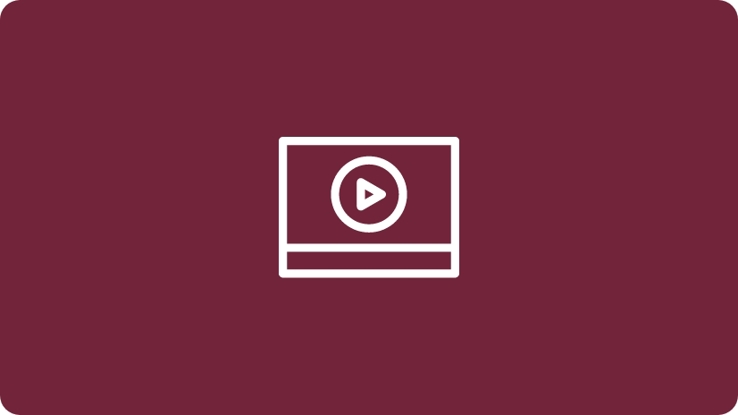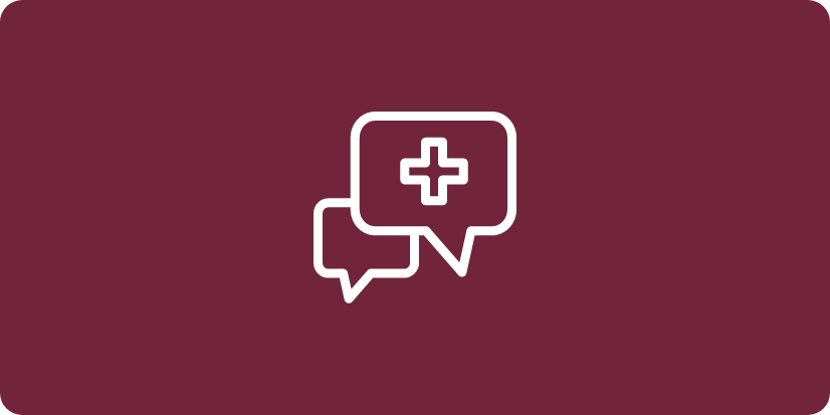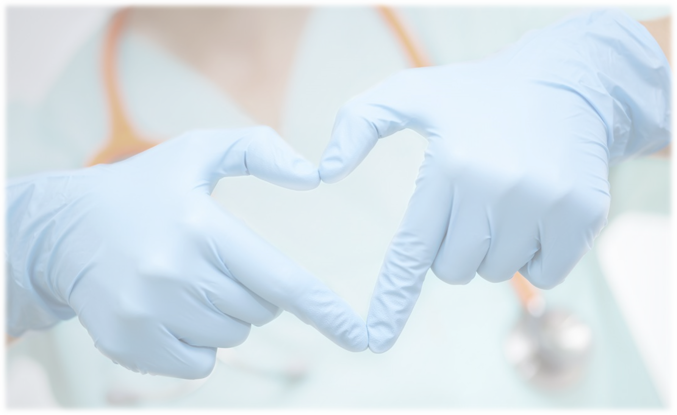New Patient Story
- Location: Los Angeles,


"Breath. Just breath - inhale slow, then breath out. You can control how you breath," he said, voice full of concern as he gently rubbed my back. I was curled in a ball on the floor, brain unable to do anything but repeat a singular sentiment: No, I'm not doing that again. Never. Nope. Eventually my husband was able to help me off the floor and like a zombie get me to the shower to wash away the tears and any barely understood pathogens.
I was barely 6 months into a leadership role, and my colleagues and coworkers had been my work family for more than a decade. Many had been my mentors and guides, and it was a humbling honor and great responsibility to now maintain stability with leadership changes. Then the pandemic hit.
Guidelines for those of us in the OR where patients are regularly intubated and extubated (also known as aerosol generating procedures) were non existent, even while draft measures for other areas went into effect.
Without official guidance from those above me, infection control, or education (as all areas had been hindered by sudden and unfilled vacancies or absences), I had been fighting to put into place the best safety measures for PPE and workflow on my own. I had inserviced our staff in small batches, and had buy in from the physicians we work with.
The first couple emergencies went ok. But then they didn't. There were too many sick patients with COVID that emergently needed surgery. There weren't enough signs to post. Not all of our staff felt confident in the adjusted workflow for these cases. And despite me jumping in because I would never ask someone to do something I would not do myself, people got exposed. I may have been exposed.
It was almost Christmas. My preschooler and kindergartner had had their lives upended with remote learning. My work-family had done their best to be safe, but we weren't able to keep everyone around us protected. How could this happen?
Was I going to get sick and become the next patient? Was I going to have to care for one of my coworkers should they become ill? What about my kids and my husband- what if I accidentally expose them? I couldn't even say for certain that we were able to help or save the patients that came to us, so what would I do if it was someone close to me that I felt responsible for that got so sick?
The weight of it all crashed down on me. I broke. I made it through that day, and somehow drove home, and as it all sank in once I left my shoes at the front door and thoroughly scrubbed my face and hands, I crumpled and broke.
My brain stopped thinking and got stuck in the panic of "Oh no, I can't do that again. What if... what if... what if..." The sobs that I heard coming out of me were animalistic and foreign.
Somehow, after the inkiness of sleep by exhaustion, I managed to get my young kids set up for remote learning in the morning, and numbly drove to work the next day. I felt that if I didn't go, things could be even worse without me there to at least try and guide pandemic practices to be as safe as possible with all of the excruciating unknowns.
I still feel broken. I can't say that wound has healed. With all of the very very many changes in staff since then, it is not humanly possible to impart all of the knowledge and skills necessary to each new face as quickly as it needs to be to keep our patients and each other safe.
But I am here. Trying. Sad words for the Lorax sometimes echo in my head, "Unless someone like you cares a whole awful lot, nothing will change. No it will not." And as broken, numb, terrified, traumatized, and morally injured as I still feel every time I have to assign a member of my work family to an unknown or potentially unsafe situation, I care a whole awful lot. I care that our patients are safe, that our caregivers are safe, that the environment were spend a majority of our days in is supportive, and successfully safe.
It is not the resilience of myself or my colleagues that I question or stay up worrying for, it is the broader environment of support for both patients and caregivers alike that keeps me awake. We can and have kept going , quietly locked away behind our badge access locked doors in our secret world of surgery. We can mantle and navigate great human suffering with compassion and focus. I only want to see those same skills in action around and above us to acknowledge a change in environment is needed. Our caregivers, especially in surgery, have resilience in spades and support for one another. I care a whole awful lot- enough to try and affect the supportive, detailed, and logistical changes we need to keep our resilience. While the good intentions and recognition of non-clinical professionals is appreciated, I fear the emphasis on resilience training is more harmful than helpful by insinuating that the morally compromising, horrifying scenes we must participate in, and shear amount of suffering we have been virtually helpless to ease somehow aren't worthy of our grief and aversion.
.png)


.jpg)
